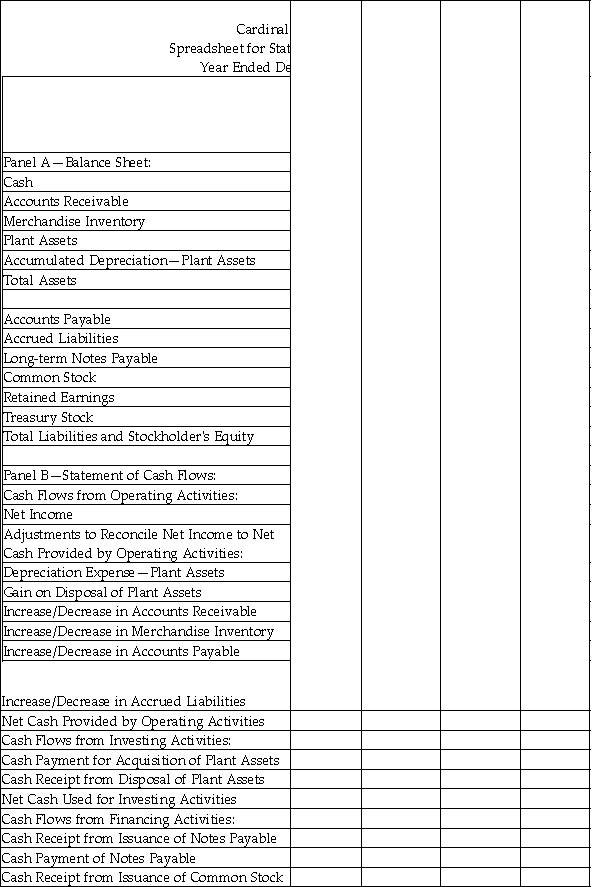Cardinal Company uses the indirect method to prepare its statement of cash flows. Using the following information, complete the worksheet for the year ended December 31, 2016.
- Net Income for the year ended December 31,2016 was $49,000
- Depreciation expense for 2016 was $12,000
- During 2016, plant assets with a book value of $10,000 (cost $10,000 and accumulated depreciation $0) were sold for $14,000
- Plant assets were acquired for $52,000 cash
- Issued common stock for $28,000
- Issued long-term notes payable for $34,000
- Repaid long-term notes payable for $40,000
- Purchased treasury stock for 3,000
- Paid dividends of $10,000 
Definitions:
John Lewis
John Lewis was an American politician and civil rights leader who served as a U.S. Representative for Georgia's 5th congressional district from 1987 until his death in 2020, known for his role in the Civil Rights Movement.
Labor Militancy
Labor Militancy refers to a more aggressive and confrontational approach within the labor movement, often involving strikes, protests, and other direct action tactics to secure workers' rights and demands.
Civil Liberties
Individual rights protected by law from governmental interference or restriction, including freedom of speech, assembly, and religion.
Labor Rights
The protections and entitlements of workers, including the right to safe working conditions, fair wages, and freedom from discrimination, established by law and labor unions.
Q26: Lenders use the financial statements of governments
Q30: The fair value method is used to
Q37: List the two categories of liabilities reported
Q53: GAO standards specify that performance audit reports
Q55: Gain on Disposal of a trading investment
Q60: Ross Corporation reported the following: <img src="https://d2lvgg3v3hfg70.cloudfront.net/TB7388/.jpg"
Q74: The market rate is the rate used
Q122: Pearland, Inc. has 8,000 shares of preferred
Q128: On December 2, 2017, St. Augustine, Inc.
Q173: On January 1, 2017, Toland Sales issued